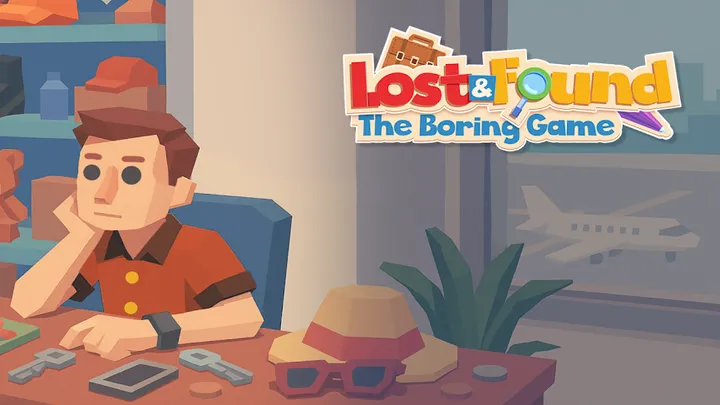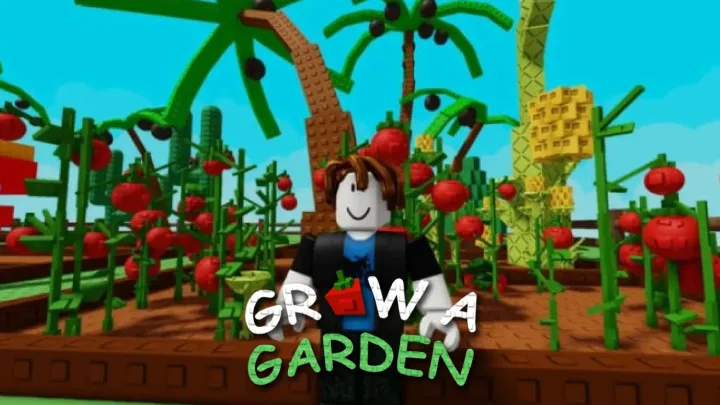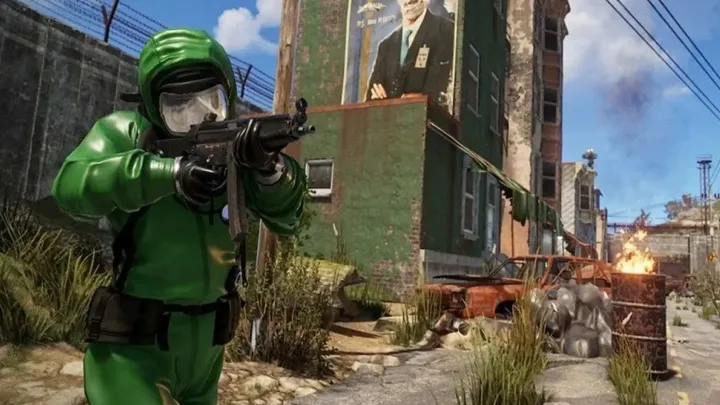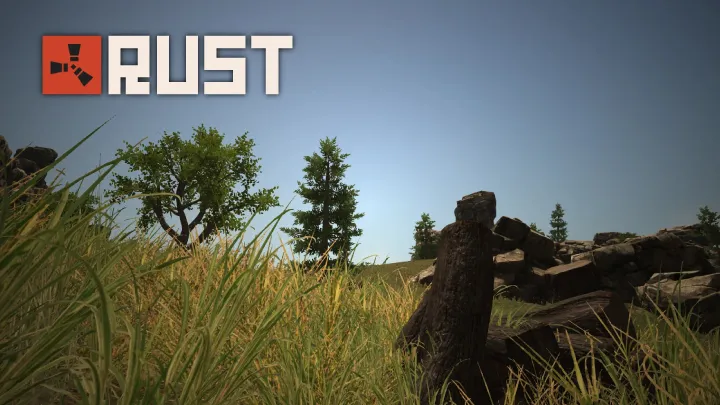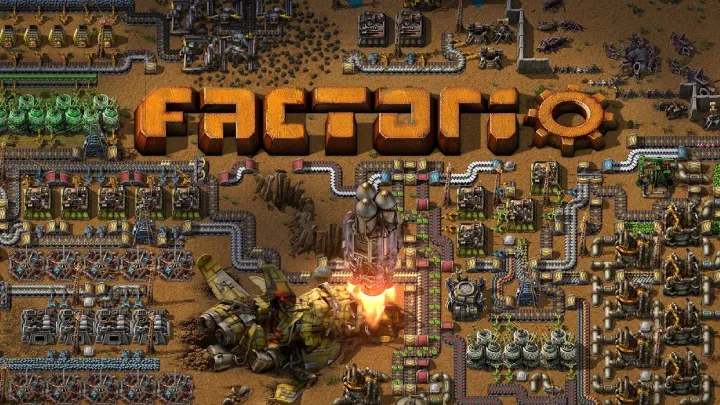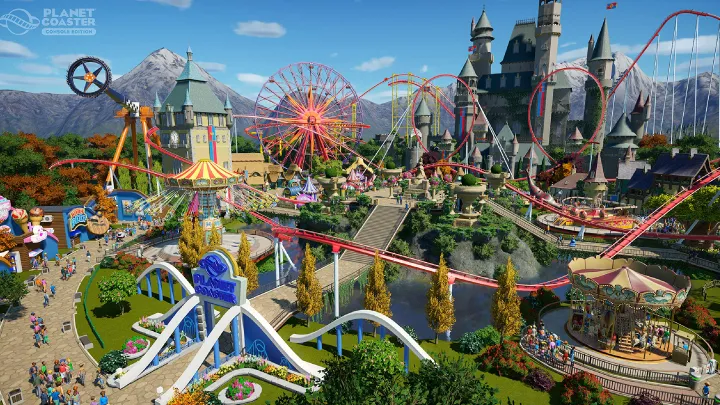Rust is a multiplayer survival game developed by Facepunch Studios, where players must gather resources, build bases, and survive against the elements and other players. Known for its intense PvP combat and deep crafting mechanics, Rust offers a challenging experience that rewards strategic thinking and teamwork. This guide aims to provide players with essential tips and strategies to thrive in the unforgiving world of Rust, whether you're a newcomer or a seasoned veteran.
Introduction
In Rust, players start with nothing but a rock and a torch, and they must quickly gather resources to build shelters, craft weapons, and defend themselves from threats. The game's open-world environment is filled with dangers, including wild animals, environmental hazards, and other players who can be both allies and adversaries. This guide will explore key aspects of gameplay, including resource gathering, base building, combat strategies, and community engagement, providing a comprehensive roadmap for success in Rust.
Getting Started: The Basics of Rust
Understanding the Game Mechanics
Before diving into the world of Rust, it's essential to understand the core mechanics.
- Survival Elements: The game features hunger and health systems that require players to find food and manage their health. Staying fed and hydrated is crucial for survival.
- Crafting System: Rust has a robust crafting system that allows players to create tools, weapons, and building materials. Understanding recipes and resource requirements is vital for effective gameplay.
Initial Resource Gathering
Your first task in Rust is to gather basic resources.
- Gathering Essentials: Start by collecting wood and stone. Use your rock to hit trees for wood and pick up stones from the ground. These resources are essential for crafting your first tools.
- Finding Food: Hunt animals for meat and gather berries or mushrooms. Food is vital for maintaining your health and stamina.
Building Your First Shelter
Choosing a Location
Selecting the right location for your first base is crucial.
- Safety and Accessibility: Look for a spot that is relatively safe from other players and wildlife. Consider proximity to resources like trees and rocks, as well as water sources.
- Elevation and Visibility: Building on elevated ground can provide a strategic advantage, allowing you to spot approaching threats early.
Constructing Your Shelter
Once you've chosen a location, it’s time to build your shelter.
- Basic Structure: Start by crafting a small wooden shelter. Use your gathered wood to create walls, a door, and a roof. Ensure your shelter is enclosed to protect against nighttime threats.
- Upgrading Materials: As you gather more resources, upgrade your shelter to stronger materials like stone or metal to enhance its durability.
Crafting and Resource Management
Understanding the Crafting Menu
The crafting menu is your best friend in Rust.
- Recipes and Blueprints: Familiarize yourself with the various recipes available in the crafting menu. Some items require blueprints, which can be found or researched.
- Crafting Stations: Use crafting stations like the Workbench to unlock advanced crafting options. Upgrading your Workbench level allows for more complex items.
Efficient Resource Management
Managing your resources effectively is key to survival.
- Storage Solutions: Craft storage boxes to keep your resources organized. This allows you to easily access materials when needed.
- Resource Prioritization: Prioritize gathering resources based on your immediate needs. Focus on wood and stone early on, but don't neglect food and medical supplies.
Exploring the World
Navigating the Environment
Exploring the world of Rust can yield valuable resources and opportunities.
- Landmarks and Biomes: Familiarize yourself with the different biomes and landmarks on the map. Each area has unique resources and challenges.
- Looting and Raiding: Search for loot in abandoned buildings, crates, and resource sites. Keep an eye out for other players, as these areas can be dangerous.
Understanding Environmental Hazards
The environment in Rust can be unforgiving.
- Wildlife Encounters: Be cautious of wildlife, such as bears and wolves, which can pose significant threats. Equip weapons when exploring to defend yourself.
- Weather Conditions: Pay attention to the weather. Cold weather can affect your health, so dress appropriately and seek shelter during storms.
Combat Strategies
Engaging in PvP
Combat is a significant aspect of Rust, and knowing how to engage effectively is crucial.
- Weapon Choices: Start with basic weapons like bows and melee weapons. As you progress, craft firearms for more effective combat.
- Stealth Tactics: Use stealth to your advantage. Crouch and move quietly to ambush unsuspecting players or avoid detection.
Teamwork and Communication
Working with others can enhance your chances of survival.
- Forming Alliances: Consider teaming up with other players to increase your chances of survival. Share resources and divide tasks to improve efficiency.
- Communication Tools: Use voice chat or text chat to communicate with your team. Clear communication can help coordinate attacks and defenses.
Base Defense and Security
Fortifying Your Base
A well-defended base is essential for survival in Rust.
- Building Walls and Gates: Create strong walls and gates to protect against raiders. Use building materials like stone and metal to enhance security.
- Traps and Defenses: Consider placing traps around your base to deter intruders. Use items like spikes or turrets for added protection.
Monitoring for Threats
Stay vigilant and monitor for potential threats.
- Surveillance: Use watchtowers or elevated spots to keep an eye on your surroundings. This will help you spot approaching enemies early.
- Regular Patrols: If you're playing in a team, assign players to patrol the area around your base. This can help deter raiders and spot threats before they reach your base.
Crafting Advanced Equipment
Unlocking Advanced Recipes
As you progress, you'll want to craft more advanced items.
- Researching Blueprints: Find and research blueprints to unlock advanced crafting options. This includes better weapons, armor, and building materials.
- Upgrading Tools: Upgrade your tools and weapons to improve efficiency and effectiveness in gathering and combat.
Utilizing Vehicles and Transportation
Vehicles can enhance your mobility and resource gathering.
- Crafting Vehicles: As you unlock advanced recipes, consider crafting vehicles for faster travel. They can help you explore larger areas quickly.
- Using Boats: If the map has water bodies, boats can be useful for traversing large distances and accessing remote locations.
Engaging with the Community
Joining a Clan or Group
Engaging with the community can enhance your gameplay experience.
- Finding a Clan: Consider joining a clan or group of players. This can provide access to shared resources, protection, and teamwork.
- Participating in Events: Many communities host events or challenges. Participating can lead to rewards and enhance your skills.
Trading and Bartering
Trading can be an effective way to acquire resources.
- Setting Up Trade: Establish trade routes with other players. You can exchange resources, items, or services, benefiting both parties.
- Negotiation Skills: Develop your negotiation skills to get the best deals. Understanding the value of items can help you make advantageous trades.
Troubleshooting Common Issues
Dealing with Raids
Raids can be a significant threat to your base.
- Preparing for Raids: Reinforce your defenses before known raid times. Be ready with weapons and supplies to defend your base effectively.
- Retaliation Strategies: If your base is raided, consider planning a counter-raid. Understanding your attackers' weaknesses can give you an advantage.
Managing Resource Scarcity
Resource management is crucial, especially during scarcity.
- Finding Alternative Sources: If you run low on resources, explore new areas for alternative sources. Consider trading with other players to replenish supplies.
- Sustainable Practices: Practice sustainable gathering techniques to ensure a steady supply of resources. Avoid over-harvesting and replant where possible.
Conclusion
Rust offers a challenging and rewarding survival experience that tests players’ skills in resource management, combat, and teamwork. By following the tips and strategies outlined in this guide, players can enhance their gameplay experience, build robust bases, and successfully navigate the dangers of the Rust world. Embrace the challenges, engage with the community, and enjoy the thrill of survival in this intense multiplayer environment.
